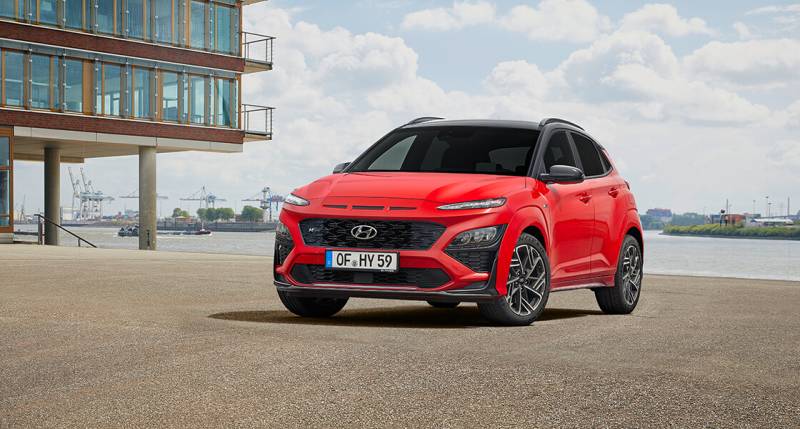The Hyundai Kona: Electric or Petrol
Are you in the market for a new car and considering the Hyundai Kona, but unsure whether to go electric or petrol? In this article, we'll take a closer look at the differences between the two versions of the Hyundai Kona and help you make an informed decision.
The Hyundai Kona is a popular compact SUV that has been on the market since 2017. It has received many awards for its design, safety features, and performance. The Kona is available in both electric and petrol versions, making it a versatile option for car buyers.
What is the Hyundai Kona?

The Hyundai Kona is a compact SUV that comes in two versions: electric and petrol. The electric version is fully electric, while the petrol version is powered by a traditional combustion engine. The Kona was designed with style and functionality in mind, making it a popular choice among car buyers.
Electric vs. Petrol
One of the main differences between the two versions of the Hyundai Kona is the power source. The electric version is powered by an electric motor and a battery, while the petrol version is powered by a combustion engine that runs on petrol.
Performance
Electric Performance
The electric version of the Hyundai Kona has a 201 horsepower motor and can accelerate from 0 to 60 mph in 6.4 seconds. It has a top speed of 104 mph and offers instant torque, making it a fun and responsive car to drive.
Petrol Performance
The petrol version of the Hyundai Kona has a 147 horsepower engine and can accelerate from 0 to 60 mph in 9.2 seconds. It has a top speed of 127 mph and offers a smooth and comfortable ride.
Range
The electric version of the Hyundai Kona has a range of up to 258 miles on a single charge, making it a great option for those who need a car for daily commuting or short trips. The petrol version has a range of around 400 miles on a full tank, making it a better option for longer trips.
Charging Time
The electric version of the Hyundai Kona can be charged to 80% in just 54 minutes using a fast charger, while a full charge using a standard charger takes around 9 hours. The petrol version can be refueled in just a few minutes at a petrol station.
Cost
The electric version of the Hyundai Kona is more expensive than the petrol version, but it offers lower running costs over time. The petrol version may be cheaper to purchase initially, but it will cost more to maintain and fuel over time.
Environmental Impact
The electric version of the Hyundai Kona produces zero emissions and has a much smaller environmental impact than the petrol version, which produces greenhouse gases and contributes to air pollution.
Driving Experience
The electric version of the Hyundai Kona offers a quiet and smooth driving experience, while the petrol version offers a more traditional driving experience with the sound and feel of a combustion engine.
Safety Features
Both versions of the Hyundai Kona come with a range of safety features, including lane departure warning, automatic emergency braking, blind-spot monitoring, and rear cross-traffic alert. The electric version also offers an advanced regenerative braking system that helps improve safety and control while driving.
Maintenance
The electric version of the Hyundai Kona requires less maintenance than the petrol version, as it has fewer moving parts and does not require oil changes or other traditional engine maintenance. However, the electric version may require occasional battery maintenance or replacement over time.
Resale Value
The resale value of the Hyundai Kona varies depending on the version and its condition, but the electric version may have a higher resale value due to its lower environmental impact and increasing demand for electric cars.
Warranty
Both versions of the Hyundai Kona come with a 5-year/60,000-mile basic warranty and a 10-year/100,000-mile powertrain warranty, providing peace of mind for car buyers.
Pros and Cons
Electric Version
Pros:
- Zero emissions
- Instant torque and responsive driving experience
- Lower running costs over time
- Quieter and smoother driving experience
Cons:
- Higher upfront cost
- Limited range for longer trips
- Longer charging time
Petrol Version
Pros:
- Cheaper upfront cost
- Longer range for longer trips
- Faster refuelling time
Cons:
- Higher fuel and maintenance costs over time
- Higher environmental impact
Both the electric and petrol versions of the Hyundai Kona have their advantages and disadvantages, and the choice ultimately comes down to personal preference and individual needs.
The electric version is a great option for those who prioritise environmental impact and lower running costs, while the petrol version may be a better fit for those who require longer range and faster refuelling times.



